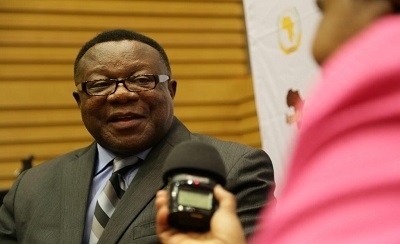
“Africa needs to be built by its citizens as Agenda 2063 does not belong to the African Union but to all Africans,” said Dr. Nkosazana Dlamini-Zuma, Chairperson of the African Union Commission at her opening remarks at the 28th Ordinary Session of the Executive Council of the African Union (AU) Summit in Addis Ababa, Ethiopia on 27th January, 2016.
In order to achieve Agenda 2063, capacity building in Africa should not only be discussed, but prioritized. According to Prof. Emmanuel Nnadozie, the African Capacity Building Foundation’s (ACBF) Executive Secretary, “One of the major areas not addressed when Agenda 2063 was drafted, was how it was going to be implemented.”
“The existence of institutions does not necessarily translate into the needed human capacity to bridge the gap between visualization and actualization of Agenda 2063,” said Prof. Nnadozie.
With the theme for the summit focusing on human rights and more specifically on the rights of women, the ACBF plans to contribute greatly to this cause. “Human rights is an important issue everywhere, however, where steps have been taken to ensure human rights are taken seriously, we still need to resolve the gap between human rights and women’s rights,” he added.
That is where the ACBF steps in. The ACBF continues to support the creation and funding of projects which focus on the empowerment of women. Examples of this are clearly evident in the funding of projects such as the Empowering Women in Agriculture (EWA) Initiative and the Women’s University of Africa established in Zimbabwe. There are a number of NGOs, including Femmes Afrique de Solidarite, which the ACBF not only continues to fund but also provides technical support.
Whilst ensuring the goals of the AU are met for the year, the ACBF’s ambition for this Summit is to present the studies and analysis that the ACBF has conducted from AU member states. These include studies conducted on understanding capacities needed on the continent; critical skills necessary to achieve the 10 year milestone of Agenda 2063 and finally the strategy needed to achieve these goals. It is the hope of the ACBF that the studies and analysis will be accepted and adopted by member states which will then allow immediate action to be taken.
View more pictures from the 26th AU Summit here...





